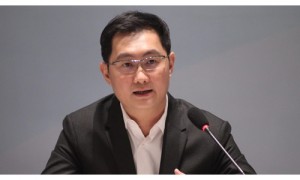The city of Beijing will ban the construction of new oil refining, steel, cement and thermal power plants as well as the expansion of existing projects, the local government said in its latest policy document aimed at tackling air pollution.
The document, published on the Beijing government's official website (www.bjrd.gov.cn) on Wednesday, said the ban would take effect from March.
The policy document, approved by the local legislature last week, also commits China's capital city to cut total emissions of PM 2.5, a key component of air pollution, by 5 percent this year.
Beijing was hit by weeks of hazardous smog last January, prompting the central government to pledge tough new measures to improve air quality throughout the country.
The new measures are part of the local government's efforts to implement a pollution masterplan drawn up by the central government last September, which committed China to reduce its dependence on coal and close outdated industrial capacity.
The policy document also said the city would strive to control the total number of vehicles on its roads as well as establish zones where high-polluting fuels like coal would be banned completely.
Firms that fail to install emissions technology, or meet tough pollution standards could be fined up to 500,000 yuan ($82,600) and have their emission permit allocation cut for the following year.
Environment minister Zhou Shengxian said earlier this month that China was currently looking into establishing a nationwide trading system for pollution permits as part of its efforts to establish market mechanisms to clean up its environment.







